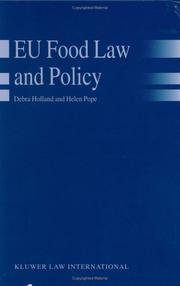| Listing 1 - 8 of 8 |
Sort by
|
Book
ISBN: 0890051062 Year: 1976 Publisher: Chicago : Ares Publishers,
Abstract | Keywords | Export | Availability | Bookmark
 Loading...
Loading...Choose an application
- Reference Manager
- EndNote
- RefWorks (Direct export to RefWorks)
Names, Personal --- Inscriptions, Greek --- Prosopography --- Noms de personnes grecs --- Prosopographie --- Greek --- Attik*e (Greece) --- Biography --- Épigraphie --- Inscriptions grecques --- Métèques --- Étrangers --- Grèce --- Antiquité --- Attique (Grèce) --- Répertoires --- Athènes (Grèce) --- Histoire --- Sources
Book
Year: 1969 Publisher: Roma : L'Erma di Bretschneider,
Abstract | Keywords | Export | Availability | Bookmark
 Loading...
Loading...Choose an application
- Reference Manager
- EndNote
- RefWorks (Direct export to RefWorks)
Book
Year: 1969 Publisher: Roma : L'Erma di Bretschneider,
Abstract | Keywords | Export | Availability | Bookmark
 Loading...
Loading...Choose an application
- Reference Manager
- EndNote
- RefWorks (Direct export to RefWorks)
Book
Year: 1935 Publisher: New York (N.Y.): Cosmos
Abstract | Keywords | Export | Availability | Bookmark
 Loading...
Loading...Choose an application
- Reference Manager
- EndNote
- RefWorks (Direct export to RefWorks)
Book
Year: 1947 Publisher: Philadelphia (Pa.): Jewish publication society of America
Abstract | Keywords | Export | Availability | Bookmark
 Loading...
Loading...Choose an application
- Reference Manager
- EndNote
- RefWorks (Direct export to RefWorks)
Book
Year: 1947 Publisher: Philadelphia : Jewish Publ. Society Press,
Abstract | Keywords | Export | Availability | Bookmark
 Loading...
Loading...Choose an application
- Reference Manager
- EndNote
- RefWorks (Direct export to RefWorks)
Épigraphie --- Inscriptions grecques --- Étrangers --- Prosopographie --- Grèce --- Grèce --- Grèce --- Épigraphie --- Inscriptions grecques --- Étrangers --- Prosopographie --- Grèce --- Antiquité --- Grèce --- Attique (Grèce) --- Grèce --- Attique (Grèce) --- Antiquité --- Répertoires

ISBN: 9041121242 9789041121240 Year: 2004 Publisher: The Hague ; New York : Kluwer Law International,
Abstract | Keywords | Export | Availability | Bookmark
 Loading...
Loading...Choose an application
- Reference Manager
- EndNote
- RefWorks (Direct export to RefWorks)
To all appearances, Europe is at present undergoing a crisis of consumer confidence with respect to the food industry. Recent food scares, the genetically-modified food controversy, a growing public awareness of the environmental footprint of intensive farming methods, and a perceived threat to the deeply-held European cultural values surrounding diet and cuisine all have combined to expose the vulnerability of consumers in the very ordinary activity of purchasing food. Although the creation of the European Food Safety Authority (EFSA) in February 2002 can be viewed as an EU response to this crisis, it in fact represents an inevitable milestone in a body of food-specific European legislation and case law that has been growing for many years. The EFSA does, however, clearly establish food law as an autonomous branch of EU law. This is the first book to survey and analyse this body of law in depth, drawing together the relevant laws and cases and taking stock of the trends and likely future developments in this dynamic and emotive area of law and policy. elucidates the scope of European food law by investigating several avenues and facets of the subject, including the following: its underpinnings in Article 3 of the EC Treaty, on the free movement of goods; the principle of mutual recognition among Member States; case law developments concerning composition of foodstuffs, labelling, sales promotion, advertising, and other aspects of food production and distribution; aims and policies of the January 2000 White Paper on Food Safety issued by the European Commission; appropriate hygiene standards; and authorisation and labelling of GMOs. Because food is such a central and essential element in society, food law has far-reaching economic, social, and environmental consequences. And because Europe's new food safety regime is intended, by an extraordinary unanimity of Member States and major political groups, to be the most up-to-date and effective in the world, a broad range of legal practitioners and scholars, social scientists, and policymakers will greatly appreciate this thoroughgoing and insightful analysis
Food law and legislation --- Aliments --- Droit --- Food law and legislation - European Union countries
Book
ISBN: 0890051054 Year: 1976 Publisher: Chicago : Ares,
Abstract | Keywords | Export | Availability | Bookmark
 Loading...
Loading...Choose an application
- Reference Manager
- EndNote
- RefWorks (Direct export to RefWorks)
Names, Personal --- Prosopography --- Inscriptions, Greek --- Noms de personnes grecs --- Prosopographie --- Greek --- Attik*e (Greece) --- Biography
| Listing 1 - 8 of 8 |
Sort by
|

 Search
Search Feedback
Feedback About UniCat
About UniCat  Help
Help News
News